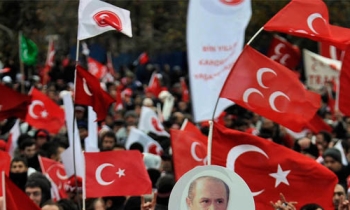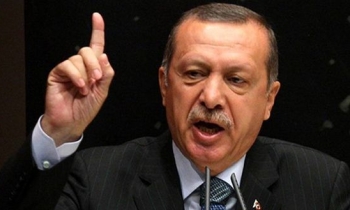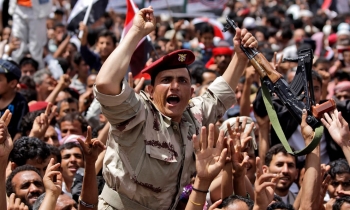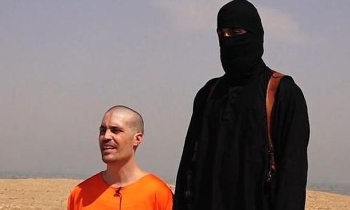Does the mainstream media depict Islam unfairly? According to a new Washington Post poll, 46 percent of Americans have a negative view of Islam. The Post attributes this fact to "political statements and media reports that focus almost solely on the actions of Muslim extremists."
It may have been the extremists who hijacked the airplanes, but it was the women and the children who flooded the streets of Palestine in celebration after the Twin Towers fell.
It may have been the extremists who murdered Dutch filmmaker Theo Van Gogh, but thousands of Muslims have rioted (and over 100 people have been killed) over illustrations published in a Danish newspaper.
It may have been the extremists in Hamas who strapped explosives to their bodies and killed Israeli schoolchildren, but it took the support of a majority of voters to give Hamas control of the Palestinian legislature.
In each of these cases, the extremists justified their crimes by appealing to their religion and its holy book. If such an interpretation of Islam is faulty (and I suspect it is, knowing that at various times, the Crusades, the Inquisition and slavery have been "justified" by the Bible) where is the condemnation from the Islamic middle?
Some apologists counter by saying that the media pays no attention when Muslims do speak out against terrorism. This simply isn't true. Last November, three hotels in Jordan were bombed by terrorists. When the Jordanian people rallied in support of their leader and against terrorism, it was given prominent coverage in The New York Times and was widely reported in newspapers around the United States. It seems, however, that such indignation is lacking after other violent attacks, especially when the victims are Americans or Jews.
The media cannot be blamed for reporting the truth. Since the Black September massacre of Israeli athletes in 1972, hundreds of terrorist attacks have been carried out by Muslims with scarcely a word of repudiation from any Islamic government or religious leader. In fact, after the Munich massacre, delegates from a number of Muslim nations refused to comply with Germany's request that they lower their flags to half-mast to show respect to the Jewish victims.
This is not to say that Islam is worse or more prone to violence than Judaism, Christianity or any other religious sect. Many religions go through periods of violent, xenophobic turmoil. It so happens that Islam is going through such a phase now.
There are some who take this equivalency between religions too far. Last week, the 'Prince' printed a column entitled "Uncle Sam Sends Muslims to Timeout." Following the lines of the Washington Post article, the authors note, "Global public opinion is already skewed by stereotypes about Islam." They further make the claim that "in reality, the Muslim community is no different from any other community – committed to the universal values of freedom, justice and equality that underlie all religious communities."
Perhaps this is true under an idealized (or Westernized) version of Islam, but this certainly isn't true in the majority of countries that actually practice Islamic law. Under Islamic law, non-Muslims are made to be a subordinate caste of citizens called the dhimmi. Dhimmi may be forbidden from holding public office or filing suit in court, and they must pay a special tax to the state, called a jizya, if they do not wish to convert to Islam.
The abuse of women under Islamic law is also commonplace and well-documented. The rights of women are strictly curtailed, and in many Muslim countries, they can't vote, inherit property or divorce. These are not "skewed stereotypes about Islam"; these are the realities of daily life for many who live in Muslim nations.
The solution to this problem is not, as The Washington Post seems to suggest, for the media to whitewash the truth in hopes of generating positive sentiments about Islam. The media has a responsibility to report the facts, free from bias. If the facts are that Muslim extremists are committing a disproportionately high number of violent terrorist attacks, then so be it. That's what the media should report.
Jason Sheltzer is a sophomore from St. Davids, Pennsylvania. He can be reached at sheltzer@princeton.edu.









